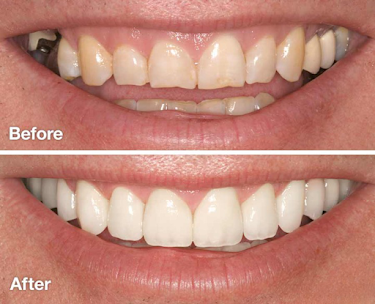Understanding the Link Between Oral Health and Overall Health
When we think about staying healthy, we often focus on diet, exercise, and regular medical checkups. But one crucial area that is often overlooked is oral health. More than just maintaining a bright smile, good oral hygiene plays a vital role in your overall well-being. Numerous studies have shown a strong connection between oral health and the health of the rest of your body.
Let’s
explore how your mouth can act as a mirror to your body’s health and why taking
care of your teeth and gums is essential for your overall wellness.
1. The
Mouth as the Gateway to the Body
Your mouth
is the entry point to your digestive and respiratory systems. It’s also home to
countless bacteria, most of them harmless. However, without proper oral
hygiene, harmful bacteria can multiply, leading to infections in your mouth and
potentially spreading to other parts of your body.
Plaque
buildup, gum disease, and untreated dental infections can allow bacteria to
enter the bloodstream, triggering inflammation and contributing to various
systemic conditions.
2. Gum
Disease and Its Systemic Impact
Periodontal
disease (gum disease) is more than just a dental issue. It’s a chronic
infection that can have serious consequences beyond tooth loss. Research shows
a strong link between gum disease and several health conditions, including:
- Heart Disease: Inflammation from gum disease
may increase the risk of clogged arteries and heart attacks.
- Diabetes: Gum disease makes it harder to
control blood sugar levels, while high blood sugar can worsen oral
infections — creating a vicious cycle.
- Respiratory Infections: Bacteria from infected gums can
be inhaled into the lungs, leading to respiratory diseases like pneumonia.
- Stroke: Poor oral health has also been
associated with an increased risk of stroke, particularly in those with
untreated gum infections.
3. Oral
Health and Pregnancy
Pregnant
women with poor oral hygiene are at higher risk for complications such as
premature birth and low birth weight. Hormonal changes during pregnancy can
also increase the risk of gum disease, making regular dental checkups essential
for expectant mothers.
4. The
Link Between Tooth Loss and Cognitive Health
Recent
studies suggest a connection between tooth loss and cognitive decline. Chronic
oral infections and inflammation may contribute to neurological changes
associated with dementia and Alzheimer’s disease. Maintaining oral hygiene
throughout life can help protect not only your physical health but also your
brain function.
5. Oral
Health and Nutrition
Oral health
directly affects your ability to chew, speak, and digest food properly. Painful
or missing teeth can lead to poor nutrition, affecting your immune system and
overall energy levels. Good oral care ensures you can eat a balanced diet and
absorb essential nutrients effectively.
6. Warning
Signs of Other Health Problems
The mouth
often shows early signs of systemic diseases. Conditions like HIV/AIDS,
osteoporosis, and certain cancers may first become apparent through oral
symptoms like ulcers, bone loss, or gum deterioration. This makes regular
dental visits a valuable tool for early diagnosis.
Tips to
Maintain Good Oral and Overall Health:
- Brush your teeth at least twice
a day with fluoride toothpaste.
- Floss daily to remove plaque and
food particles between teeth.
- Visit your dentist regularly for
cleanings and checkups.
- Avoid tobacco products and limit
sugary foods and drinks.
- Drink plenty of water and
maintain a balanced diet.
- Manage underlying health
conditions like diabetes or heart disease.
Final
Thoughts
Your mouth
is more than just a place for your smile — it’s a vital indicator of your
body’s health. Understanding the link between oral health and overall health
empowers you to take better care of yourself, inside and out. By prioritizing
dental hygiene, you’re investing in a healthier heart, lungs, brain, and
beyond.
Don’t wait until a toothache becomes a health emergency. Start with simple, consistent oral care — your whole body will thank you.



Comments
Post a Comment